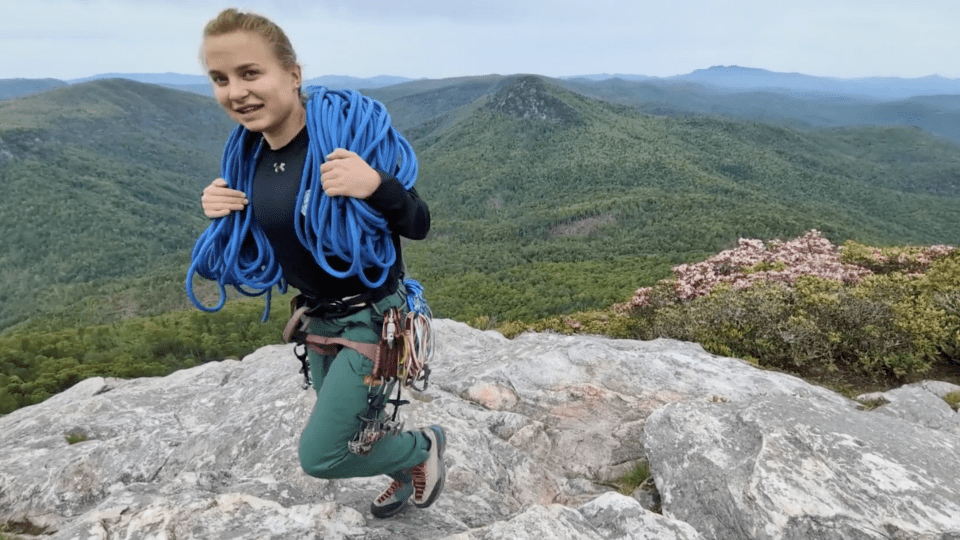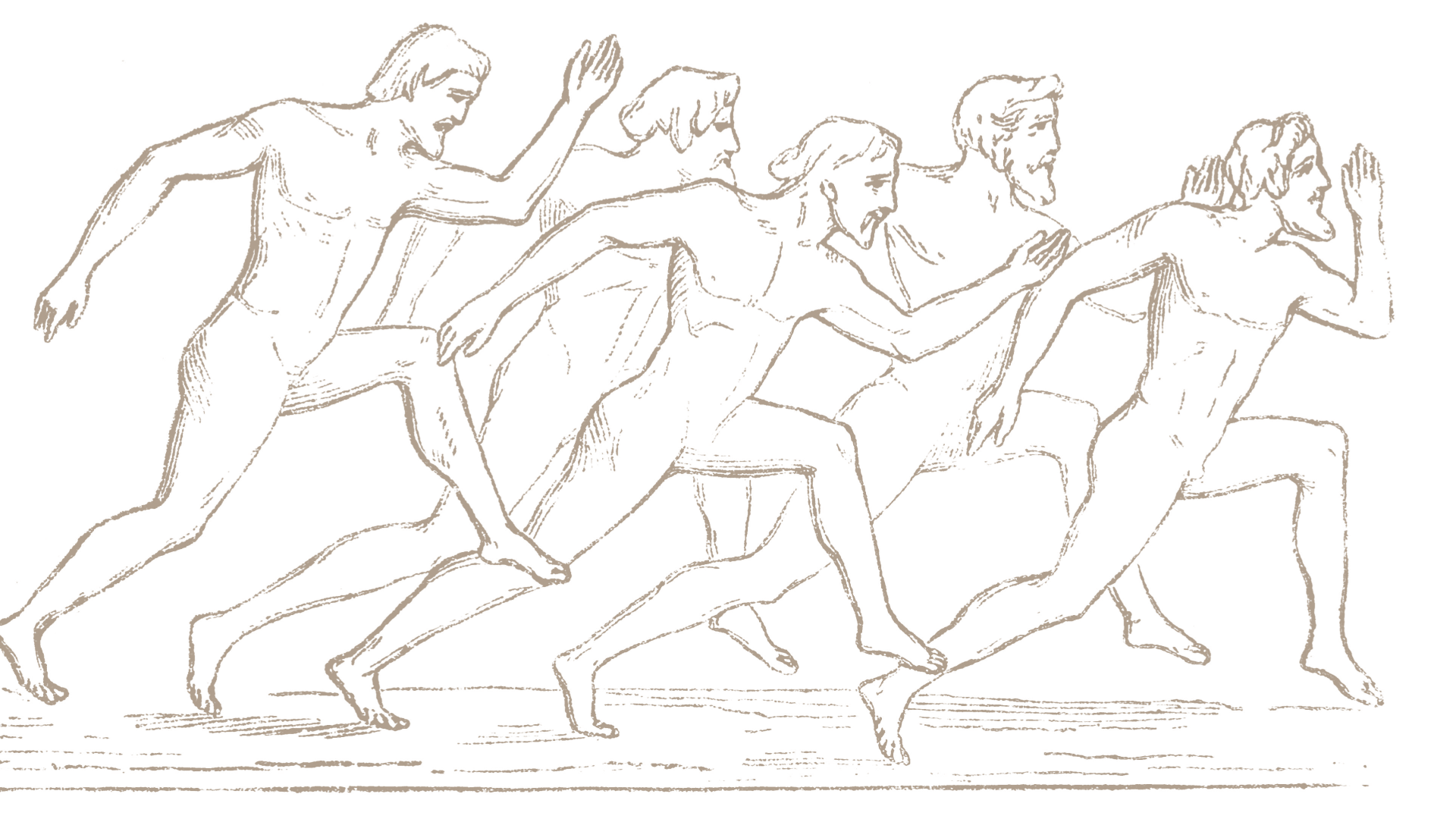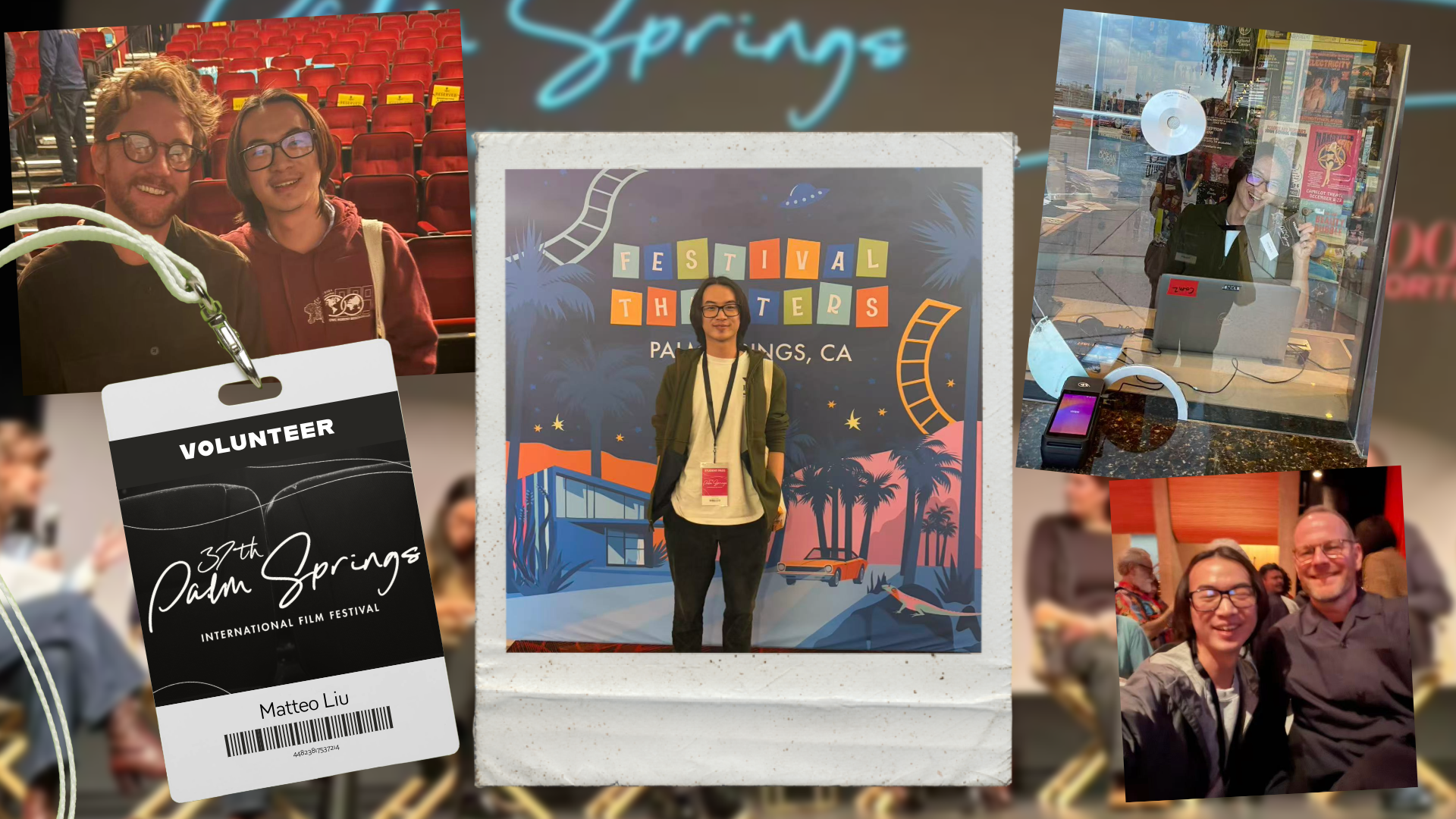It’s the Climb: Megan Mokriski ’25 Reaches New Heights With Davidson Outdoors
July 11, 2025
- Author
- Lisa Patterson

When Megan Mokriski ’25 arrived at Davidson College, she had never camped under the stars, let alone scaled the side of a mountain.
After a trip with Davidson Outdoors to Kentucky’s Red River Gorge, led by seniors with a passion for rock climbing, she took a climbing and trip leader training course — four years later, she’s climbed mountains in New Zealand and led first-year students into the same Kentucky canyons that sparked her imagination.
Mokriski recently won Clemson University’s Advanced Women’s Bouldering competition and keeps pursuing advanced climbing certifications — in the spring, she became the first student in Davidson Outdoors history to achieve single pitch climbing instructor certification. Through her enthusiasm and expertise, and the dedication of students who came before her, Davidson’s Climbing Club continues to thrive.
To mark Global Climbing Day, July 12, 2025, Mokriski shared her academic journey, research experience, and how climbing has shaped her life beyond Davidson in this Q&A and video.
How did you decide to major in biology at Davidson?
I arrived at Davidson excited about the biology major, but my interest was truly solidified during the Research in Science Experience (RISE) program with Professor Susana Wadgymar. Through RISE, I got to know Prof. Wadgymar, the biology faculty, and upper-class biology majors, and I was struck by how welcoming and passionate everyone was. Their enthusiasm was contagious, and I felt supported from the very beginning. Later, I applied for an independent study with Professor Scott Villa, who played a huge role in my journey; he always encouraged my curiosity and genuinely believed in my potential as a scientist.
Tell us about your research at Davidson.
My research focused on evolutionary ecology, specifically monarch butterfly mating behavior and how it’s influenced by their host plants (milkweed) and parasites. I was curious about whether female monarchs would change their mate choices when infected with parasites, especially since previous research suggested they self-medicate with certain milkweed species when they are sick. To investigate, I raised monarchs on different milkweed species, conducted experimental infections and observed mate choices. Surprisingly, the females didn’t pick mates based on potential medicinal benefits, but instead preferred mates raised on a different milkweed species — possibly as a way to avoid inbreeding. I learned so many different things from this process, from how to design and carry out experiments, to the kind of hard work and perseverance it can take to get high-quality data, to how to communicate my results to a wider audience. One of the biggest lessons I learned was how you can set out trying to answer one question in science and find the answer to a completely different question along the way. It really speaks to how important it is to continue conducting curiosity-based scientific research and being open to learning from whatever you find.
Where are you now and how does climbing fit into your life after Davidson?
This August, I’m moving to Lexington, Virginia, to work with Washington and Lee University’s Outing Club. Although my original plan to work in Wyoming fell through due to an Americorps grant being cut, I’m excited to continue leading climbing, backpacking and hiking trips, much like I did with Davidson Outdoors. I’m passionate about making the outdoors accessible, introducing beginners to climbing and supporting experienced adventurers. Lexington is a fantastic place for climbers, so I’ll keep pushing my own limits, too. I’m also applying to doctoral programs in ecology and evolutionary biology for fall 2026.



